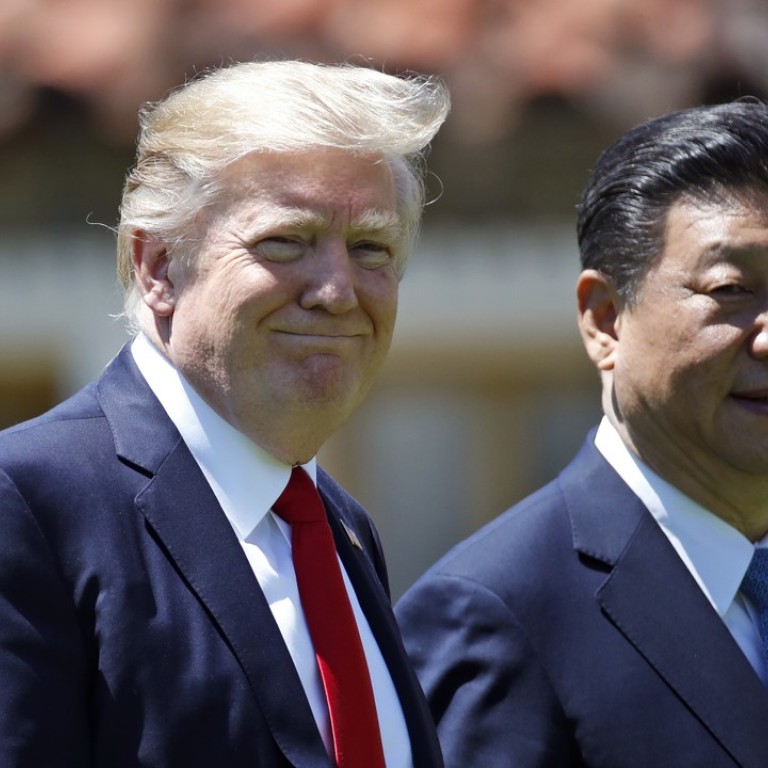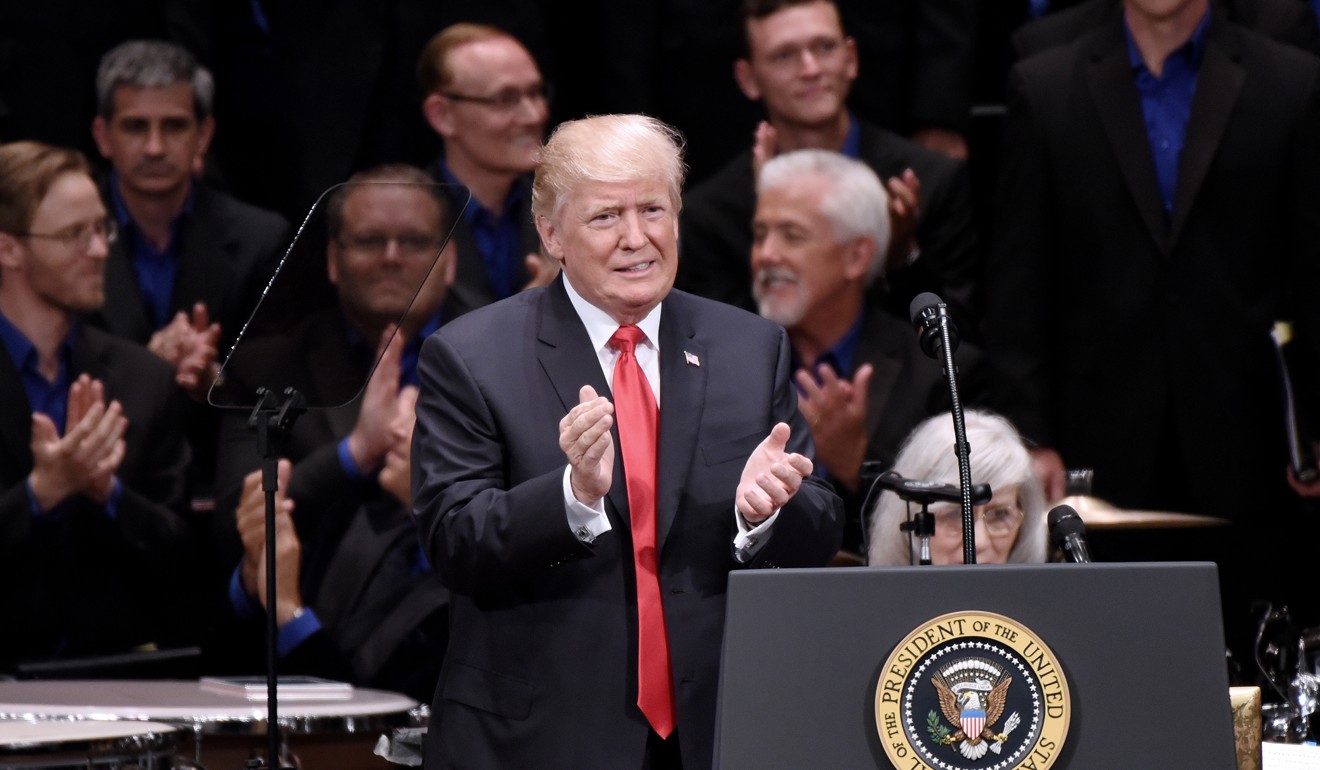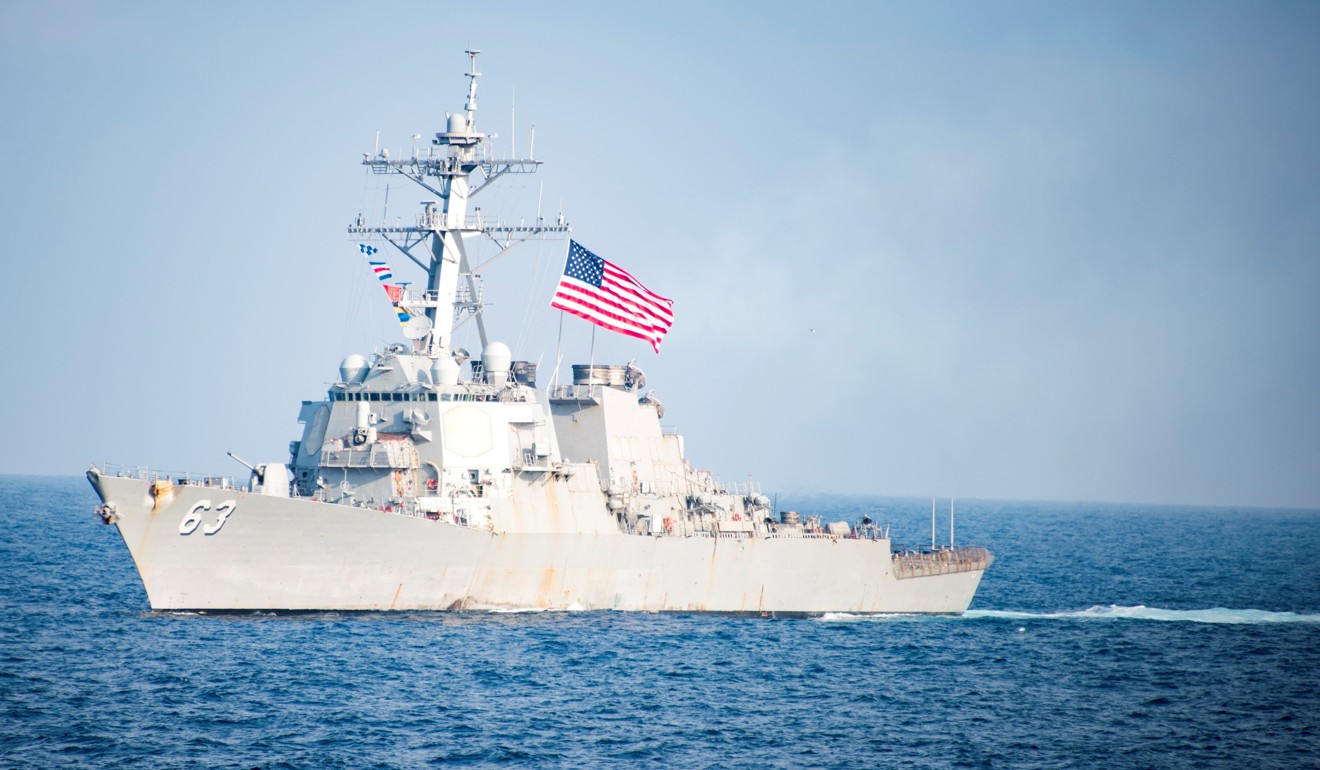
Update | Trump calls Xi as tensions escalate over Taiwan, North Korea
President Xi Jinping urged his US counterpart Donald Trump to abide by Washington’s decades-old “one-China” policy during a phone call on Monday morning as tensions between the two countries resurfaced over Taiwan, disputes in the South China Sea and how to handle North Korea’s nuclear weapons programme.
President Xi Jinping urged his US counterpart Donald Trump to abide by Washington’s decades-old “one-China” policy during a phone call on Monday morning as tensions between the two countries resurfaced over Taiwan, disputes in the South China Sea and how to handle North Korea’s nuclear weapons programme.
Xi said US-China relations have been affected by negative factors since the two men met for the first time at the Mar-a-Lago summit in Florida in April, the state broadcaster China Central Television reported.
“We attach great importance to the US government’s reaffirmation of the one-China policy and hope the US side will properly handle the Taiwan problem by adhering to the one-China principle and the three communiqués between the two sides,” Xi was quoted as saying.
The call, just days ahead of a planned second meeting between the two leaders at the G20 summit in Hamburg, Germany later this week, came after the Trump administration agreed a US$1.4 billion arms sales package with Taiwan.
China considers the island to be a breakaway Chinese province and tries to deter all countries from having formal ties with the island. US defence ties with Taiwan are a particularly sensitive issue.
The phone call also came as the Trump administration has become increasingly frustrated with Beijing over its perceived lack of progress in putting pressure on North Korea to rein in its weapons programme.
The White House said in a statement that US President Donald Trump urged Beijing to step up pressure on North Korea during their telephone conversation.

The terse statement did not provide further details of the call or say if Trump managed to persuade Xi to endorse his approach of exerting maximum pressure on North Korea, including a slew of further economic and trade sanctions.
Beijing has lodged protests following Washington’s announcement of the Trump administration’s first arms sales to Taiwan.
China has also protested against the blacklisting of a small Chinese bank accused of illicit dealings with North Korea.
Beijing was further infuriated last week with a bill approved by the US Senate Armed Services Committee that would allow regular stops by American naval vessels to Taiwan’s ports.
Tensions have also been raised between the two countries over China’s assertive claims to islands in the South China Sea.
The USS Stethem, a guided-missile destroyer, sailed within 12 nautical miles of Triton Island, part of the Paracel Islands in the South China Sea, on Sunday.
It was the second freedom-of-navigation operation conducted under Trump, following a drill in late May in which a US warship sailed within 12 nautical miles of Mischief Reef, which is also claimed by China.
Trump talked to Japanese Prime Minister Shinzo Abe by phone as well as Xi.
The call was focused on the threat posed by North Korea’s accelerated nuclear weapons programme, the White House said.
“They reaffirmed that the United States-Japan Alliance stands ready to defend and respond to any threat or action taken by North Korea,” the White House statement said.

The former Taiwanese deputy defence minister Lin Chong-pin said US moves signalled Trump was likely to shift his China policy towards a harder approach.
“Apparently, Trump still wants to step up pressure on Beijing in exchange for China’s support on North Korea. But given Trump’s track record of being unconventional and unpredictable, it remains to be seen how far he will go to get tough on China,” he said.
Robert Daly, the director of the Kissinger Institute on China at the Wilson Centre in the US, said Washington’s recent critique of China’s human rights record, its imposition of secondary sanctions on China, the arms sales to Taiwan and pending tariffs on Chinese steel exports to the US may represent a hardening of Trump’s views on China.
“They are a return to normalcy for American China policy. This hardening is in keeping with China’s long-term expectations for the relationship, but it disappoints China’s unrealistic short-term hopes for managing the Trump administration,” he said. “Of course, the Trump administration’s return to the mean in China relations could be as short-lived as its experiments with scrapping the one-China policy and cosying up to Xi Jinping. The relationship remains dangerously unstable.”
Richard Bush, a senior fellow at the Brookings Institution in Washington, said the timing of the US moves was intriguing.
“The steps announced [last] week occurred a week after the first diplomatic and security dialogue between China and the US and [days] before Trump’s meeting with Xi in Hamburg. In a way, Washington is ‘laying the table’ for the summit,” he said.

